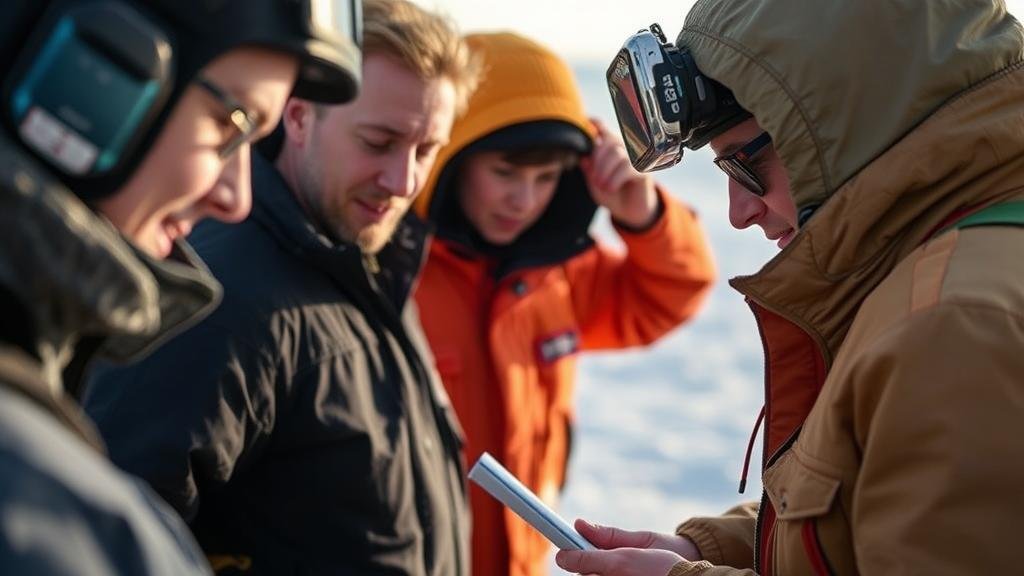Behind the scenes of an expedition: planning, execution, and discovery.
Behind the Scenes of an Expedition: Planning, Execution, and Discovery
Expeditions have always held a significant place in human history, from early explorers venturing into uncharted territories to modern scientific missions that aim to expand our understanding of the natural world. The success of any expedition depends heavily on meticulous planning, precise execution, and the discovery of new insights. This article delves into the behind-the-scenes processes that shape an expedition, with a focus on the key phases: planning, execution, and the resulting discoveries.
Planning an Expedition
The first step in any expedition is thorough planning, which can take months or even years. Key considerations during this phase include defining the objectives, selecting the appropriate team, and determining the necessary resources.
- Defining Objectives: Clear objectives guide the entire expedition. For example, the 1914-1917 Imperial Trans-Antarctic Expedition led by Ernest Shackleton aimed to cross the Antarctic continent. These objectives must balance ambition with feasibility.
- Selecting the Team: A well-rounded team includes scientists, adventurers, medical professionals, and support staff. selection process should consider the specific skills required for the expeditions objectives. For example, the 2007 Gibbons Research Expedition to explore the biodiversity of the Cambodian rainforest included ecologists and wildlife specialists.
- Resource Allocation: Budgeting for an expedition involves several costs including travel, equipment, and provisions. For example, in 2010, the National Geographic Society funded the exploration of the Amazon rainforest with a budget of approximately $500,000, which included satellite mapping and local hiring.
Another crucial component is risk assessment–identifying potential challenges such as extreme weather, wildlife encounters, or political instability in the target area. For example, planning the 2015 expedition to Irans Alborz Mountains required careful navigation of geopolitical relations while ensuring the safety of the team.
Execution of the Expedition
Once the planning stage is complete, the expedition moves into its execution phase, where theories and preparations are put to the test under real-world conditions. Effective communication and adaptability are vital during this phase.
- Logistics Management: Expeditions often take place in remote areas, necessitating precise logistics. For example, the 2003 K2 expedition faced logistical challenges when weather conditions delayed cargo delivery, forcing climbers to adapt their plans.
- Data Collection: Scientific expeditions often have distinct protocols for data collection. During the 2011 Census of Marine Life, researchers utilized advanced technology to gather data on ocean biodiversity, developing a comprehensive database for future studies.
Also, maintaining team dynamics is critical. High-stress environments can lead to conflict, thus, having a strong leadership structure ensures issues are addressed proactively. During the 1999-2000 Antarctic expedition led by the British Antarctic Survey, team-building activities were incorporated to enhance communication and cooperation among members.
Discovery and Results
The final stage of any expedition is the analysis and dissemination of findings. outcome often extends beyond the original objectives, providing unexpected insights that advance knowledge in numerous fields.
- Scientific Contributions: The findings from expeditions can significantly impact scientific communities. The 2014 Greenland Ice Sheet experiment revealed new data on climate change, demonstrating accelerated ice melting and contributing to global sea-level rise studies.
- Cultural Insights: Expeditions also uncover cultural heritage. The 1991 discovery of the ancient ice mummy Ötzi in the Alps highlighted information about prehistoric human life and is now a vital artifact in European archaeology.
Publishing results in journals or presenting findings at conferences is a common practice. 2020 Arctic expedition led by the Ocean Conservancy was instrumental in raising awareness about marine pollution, leading to broader advocacy for policy changes regarding ocean conservation.
Conclusion
Planning, executing, and discovering through an expedition is a complex yet rewarding journey. Each phase feeds into the next, incorporating the lessons learned to influence future endeavors. Expeditions not only satisfy our curiosity about the world but also yield critical data that drives scientific advancement and cultural understanding. As we continue to explore the frontiers of our planet, the methodologies honed during these expeditions will undoubtedly pave the way for future discoveries.
For anyone considering embarking on an expedition, remember the importance of thorough planning, strong teamwork, and an open mind to embrace the discoveries that await. After all, every expedition carries the potential to change our understanding of the world.



